A harrowing, deeply personal manifesto on our responsibility to the poor. Humane, grace-filled, and literally reverberating with prophetic vigor, Make Poverty Personal deserves to be read by a wide and grateful audience.
Alan Hirsch, author of The Forgotten Ways
Ash Barker and the UNOH revolution invite us to hear, smell, and touch Jesus in his most distressing disguises: in the slums, with the poor, in the most abandoned places of empire in which we find ourselves.
Shane Claiborne, The Simple Way, Philadelphia
An invitation to unlearn so much of conventional church faith and to learn afresh about Gods good news for the world. There is a clarity that will let many readers come to grips, perhaps for the first time, with the revolutionary, subversive intention of the Bible.
Walter Brueggemann, Columbia Theological Seminary
Personal, passionate, authentic, challenging, engaging, relevant. This is no programmatic or utopian vision for ending poverty and injustice in our deeply wounded world. Instead, this is powerful testimony, rooted in the biblical story, in costly discipleship, and in risk-taking involvement to follow Jesus, the servant of God to the poor.
Charles Ringma, professor emeritus, Regent College,
Vancouver, Canada
Here is a searing biblical call to end poverty, coming not from the safety of the snug office of an economist, an academic or a theologian, but from deep inside the bowels of the largest slum in Thailand. Make Poverty Personal is a discomforting, energizing, and ultimately hopeful read.
Michael Frost, coauthor of The Shaping of Things to Come
Also by Ash Barker:
Making Connections
Collective Witness
Finding Life: Reflections from a Bangkok Slum
Surrender All: A Call to Sub-merge with Christ

Emergent Village resources for communities of faith
An Emergent Manifesto of Hope
edited by Doug Pagitt and Tony Jones
Organic Community
Joseph R. Myers
Signs of Emergence
Kester Brewin
Justice in the Burbs
Will and Lisa Samson
Intuitive Leadership
Tim Keel
The Great Emergence
Phyllis Tickle
www.emersionbooks.com
MAKE
POVERTY
PERSONAL
Taking the Poor
as Seriously as the Bible Does
Ash Barker

2009 by Ash Barker
Published by Baker Books
a division of Baker Publishing Group
P.O. Box 6287, Grand Rapids, MI 49516-6287
www.bakerbooks.com
First published 2006
by Urban Neighbours of Hope
PO Box 89
Springvale Vic 3171
Australia
Printed in the United States of America
All rights reserved. No part of this publication may be reproduced, stored in a retrieval system, or transmitted in any form or by any meansfor example, electronic, photocopy, recordingwithout the prior written permission of the publisher. The only exception is brief quotations in printed reviews.
Library of Congress Cataloging-in-Publication Data
Barker, Ash.
Make poverty personal : taking the poor as seriously as the Bible does / Ash Barker.
p. cm.
Includes bibliographical references (p. ).
ISBN 978-0-8010-7189-8 (pbk.)
1. PovertyReligious aspectsChristianity. 2. PovertyBiblical teaching. 3. Church work with the poor. I. Title.
BV4647.P6B37 2009
261.8 325dc22
2008031186
Scripture is taken from the New Revised Standard Version of the Bible, copyright 1989, Division of Christian Education of the National Council of the Churches of Christ in the United States of America. Used by permission. All rights reserved.
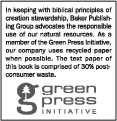
Emergent Village resources for communities of faith
 is a partnership between Baker Books and Emergent Village, a growing, generative friendship among missional Christians seeking to love our world in the Spirit of Jesus Christ. The
is a partnership between Baker Books and Emergent Village, a growing, generative friendship among missional Christians seeking to love our world in the Spirit of Jesus Christ. The  line is intended for professional and lay leaders like you who are meeting the challenges of a changing culture with vision and hope for the future. These books will encourage you and your community to live into God's kingdom here and now.
line is intended for professional and lay leaders like you who are meeting the challenges of a changing culture with vision and hope for the future. These books will encourage you and your community to live into God's kingdom here and now.
Ash Barker leads us on an important journey that is both personal and historical. Make Poverty Personal reminds us of the difference between personal and private. This book will inspire communities to put at the forefront of their efforts caring for the poor in ways that come from our normal, everyday lives. This call is to a real-life engagement with those who are in need not only for their benefit,but for ours as well.
Additionally, this book calls us to re-walk, with our words and our lives, the path of caring for the poora path walked by those of faith throughout history. Ash does not leave us simply with a call for better intentions, but a way forward for healthy engagement inour world.
This book serves communities of faith today as the kind of encouragement the Apostle Paul received in the early days of the church when he was called to "remember the poor," which was the very thing he was eager to do (Gal. 2:10). This is a book that callssome to a new vision, and others to recommit to the path they have already been walking.

Contents
Oh yes, God is moving in the world.
Across the globe there are signs of a church that is closer to the poor and further from the drums of nationalism and war. We can see an emerging church that looks more like Jesus than the evangelicalism with which many of us grew up. Ash Barker and the Urban Neighbors of Hope (UNOH) revolution invite us to hear, smell, and touch Jesus in his most distressing disguises: in the slums, with the poor, in the most abandoned places of the empire in which we find ourselves. In a world that has found it hard to hear the words of Christian preachers because of the noise and contradictions of their lifestyles, Ash Barker is one of those folks whose life reflects the things he believes. Ashs stories point us towards a new kind of Christianity for which the world longsa Christianity that looks like Jesus, and whose gospel is actually good news to the poor.
I grew up in a Christianity that tried to scare the hell out of us, literally. It had little hope to offer this world and just tried to pacify folks with the promise that there is life after death... while most of us were really asking, Is there life before death?
I remember as a child hearing all the hellfire and damnation sermons. We had a theater group perform a play called Heavens Gates and Hells Flames. In this play, actors presented scenes of folks being ripped away from loved ones, only to be sent to the fiery pits of hell, where there is weeping and gnashing of teeth. We all went forward to repent of all the evil things we had done over our first decade of life, paralyzed by the fear of being left behind. Since those days, I have grown to love the kind of Christianity about which Ash writesa Christianity that is about loving people out of the hells of this world, not just trying to scare them into heaven.
Have you ever noticed that Jesus didnt spend much time on hell? In fact, there are really only a couple of times he speaks of weeping and gnashing of teeth, of hell and Gods judgment, and both of them are about making poverty personal. Both of them have to do with the walls we create between ourselves and our suffering neighbors. One is Matthew 25, where the sheep and the goats are separated; the goats, who did not care for the poor, hungry, homeless, and imprisoned, are sent off to endure an agony akin to that experienced by the ones they neglected on this earth.
Next page
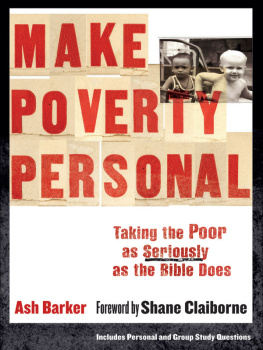

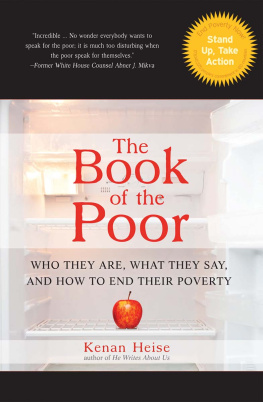
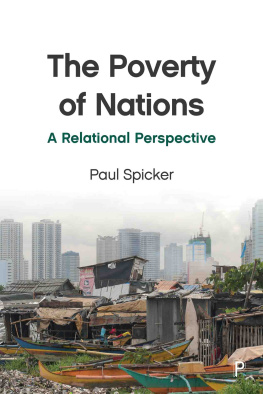

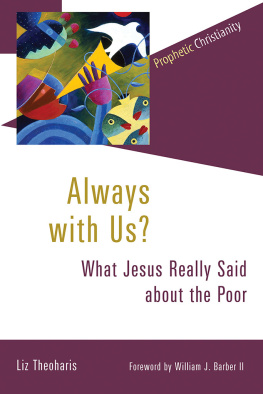
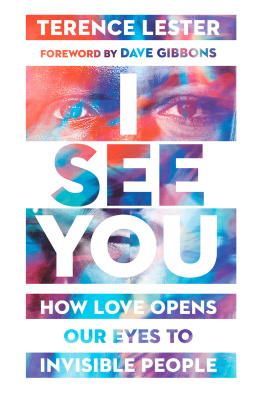
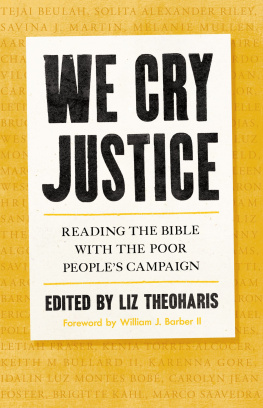
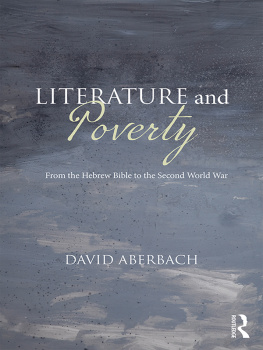
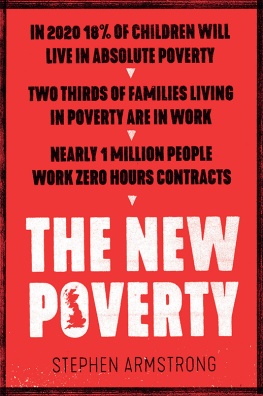
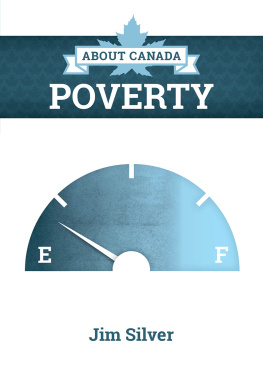



 is a partnership between Baker Books and Emergent Village, a growing, generative friendship among missional Christians seeking to love our world in the Spirit of Jesus Christ. The
is a partnership between Baker Books and Emergent Village, a growing, generative friendship among missional Christians seeking to love our world in the Spirit of Jesus Christ. The  line is intended for professional and lay leaders like you who are meeting the challenges of a changing culture with vision and hope for the future. These books will encourage you and your community to live into God's kingdom here and now.
line is intended for professional and lay leaders like you who are meeting the challenges of a changing culture with vision and hope for the future. These books will encourage you and your community to live into God's kingdom here and now.